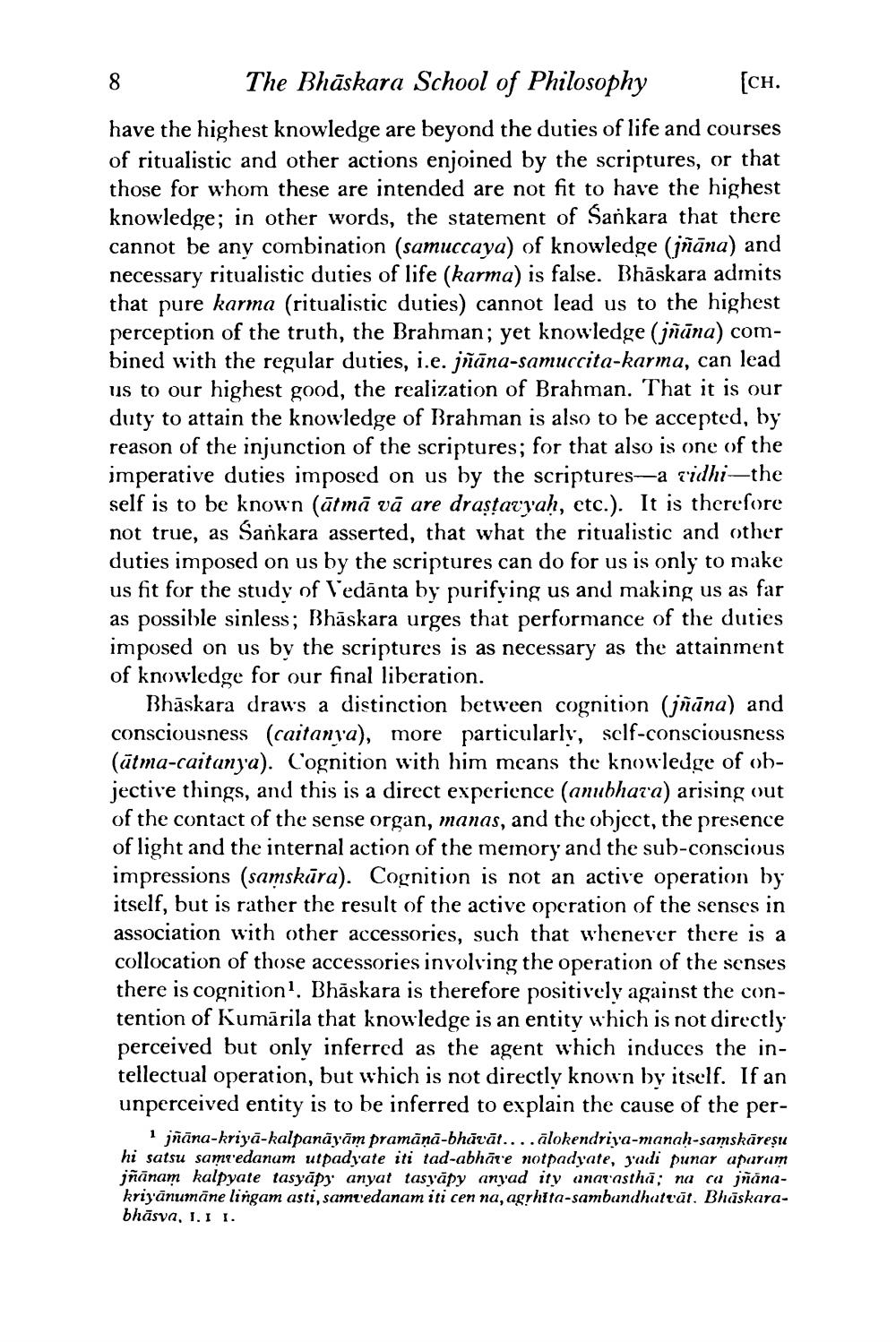________________
8
The Bhaskara School of Philosophy
[CH.
have the highest knowledge are beyond the duties of life and courses of ritualistic and other actions enjoined by the scriptures, or that those for whom these are intended are not fit to have the highest knowledge; in other words, the statement of Sankara that there cannot be any combination (samuccaya) of knowledge (jñāna) and necessary ritualistic duties of life (karma) is false. Bhaskara admits that pure karma (ritualistic duties) cannot lead us to the highest perception of the truth, the Brahman; yet knowledge (jñāna) combined with the regular duties, i.e. jñāna-samuccita-karma, can lead us to our highest good, the realization of Brahman. That it is our duty to attain the knowledge of Brahman is also to be accepted, by reason of the injunction of the scriptures; for that also is one of the imperative duties imposed on us by the scriptures—a vidhi-the self is to be known (ātmā vā are draṣṭavyaḥ, etc.). It is therefore not true, as Sankara asserted, that what the ritualistic and other duties imposed on us by the scriptures can do for us is only to make us fit for the study of Vedanta by purifying us and making us as far as possible sinless; Bhaskara urges that performance of the duties imposed on us by the scriptures is as necessary as the attainment of knowledge for our final liberation.
Bhaskara draws a distinction between cognition (jñāna) and consciousness (caitanya), more particularly, self-consciousness (atma-caitanya). Cognition with him means the knowledge of objective things, and this is a direct experience (anubhava) arising out of the contact of the sense organ, manas, and the object, the presence of light and the internal action of the memory and the sub-conscious impressions (samskāra). Cognition is not an active operation by itself, but is rather the result of the active operation of the senses in association with other accessories, such that whenever there is a collocation of those accessories involving the operation of the senses there is cognition1. Bhaskara is therefore positively against the contention of Kumārila that knowledge is an entity which is not directly perceived but only inferred as the agent which induces the intellectual operation, but which is not directly known by itself. If an unperceived entity is to be inferred to explain the cause of the per
1 jñāna-kriyā-kalpanāyām pramāṇā-bhāvāt......ālokendriya-manaḥ-samskāreṣu hi satsu samvedanam utpadyate iti tad-abhave notpadyate, yadi punar aparam jñānam kalpyate tasyapy anyat tasyapy anyad ity anavasthā; na ca jñānakriyānumāne lingam asti, samvedanam iti cen na, agrhita-sambandhatvāt. Bhāskarabhasva, I. I I.




